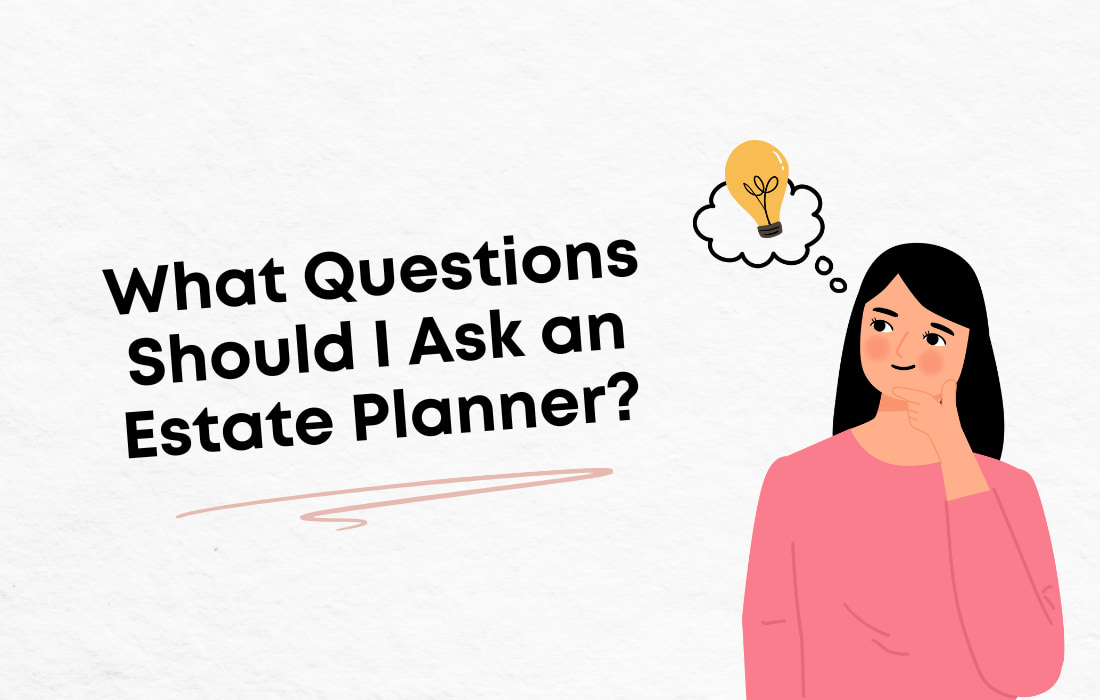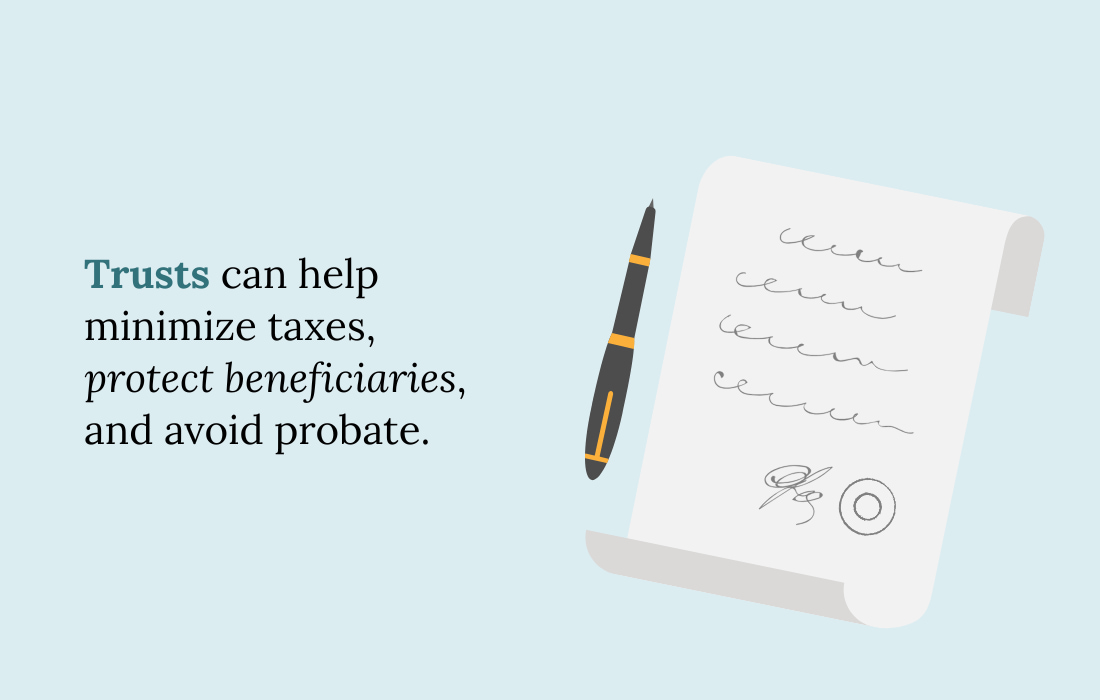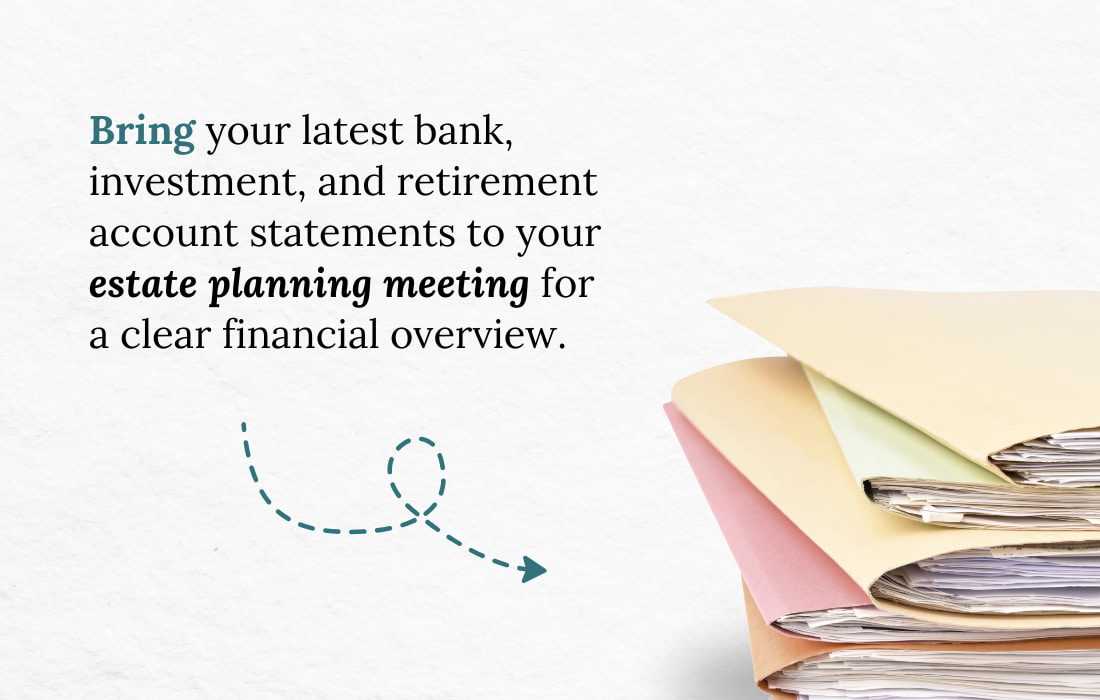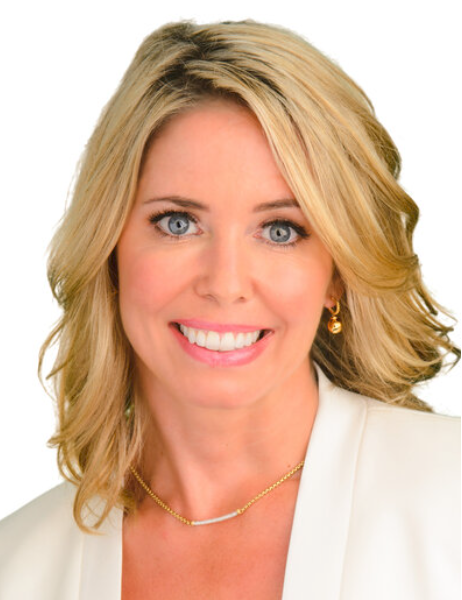Getting Started with Estate Planning
Written By Tiffany Woodfield, Financial Coach, TEP®, CRPC®, CIM®
Until I started working in the financial industry, I hadn’t thought much about estate planning.
I realized I needed a will, but I thought it was something I could do later when I was older. I didn’t understand the importance of getting things organized early and regularly updating my documents.
For me, the biggest challenge was trying to imagine a time when I was no longer around.
It was easier to put my head in the sand and assume everything would be okay. Everything would go to my husband and then to my kids.
I couldn’t even imagine what would happen to my kids, who are still minors, if something were to happen to both of us.
As my experience in the industry grew, and I worked with clients, I realized how common it is to put off estate planning. People often make assumptions and don’t realize the consequences of not planning.
These are just some of the consequences of not doing your estate planning:
- Your kids could be left without a guardian of your choice.
- Your spouse doesn’t automatically get control.
- There may be disputes, especially if you haven’t communicated with your heir.
- Your family could lose a lot of money to taxes and administration costs.
Now, it isn’t all doom and gloom.
But I want people to understand that if you don’t create an estate plan, the emotional and financial costs for your loved ones will be much greater than the cost of making one.

Why Asking the Right Questions Matters
Asking the right questions lays the groundwork for a solid estate plan, making sure that your desires are honoured and your family is taken care of.
Asking the right questions helps you think about what you own and who should be in charge. It helps minimize arguments and makes things easier for your loved ones. And most importantly, it allows you to understand your options and make informed choices.
So in this post, I’m going to share the key questions you should ask your estate planner and yourself when doing estate planning.
10 Questions to Ask an Estate Planner
Meeting with an estate planner is an important step in protecting your wealth and making sure your wishes are carried out smoothly.
But the value of that meeting depends on asking the right questions. Here are ten thoughtful questions to guide your conversation:
1. How will my estate be taxed in both Canada and the U.S.?
If you have assets or family in both countries, ask how tax laws differ and how to reduce cross-border tax exposure.
2. Should I set up a trust, and what kind would be best for my situation?
Trusts can help minimize taxes, protect beneficiaries, and avoid probate. Your planner can help determine which trust structure fits your goals.
3. What happens if I become incapacitated?
Understand how a Power of Attorney or health directive works in both countries and how to ensure it’s legally recognized where you live or own property.
4. Who should I name as executor or trustee?
Discuss what makes someone a strong choice and whether cross-border considerations could complicate their role.
5. Do I need a different will for assets held in another country?
If you hold property or investments in both Canada and the U.S., you may need more than one will to ensure proper handling of those assets.
6. How often should I update my estate plan?
Life changes—like marriage, divorce, or a move—can trigger the need to revisit your plan. Ask for guidance on what milestones should prompt a review.
7. What should I consider when naming beneficiaries?
Beneficiary designations on accounts and insurance policies can override your will. Make sure they’re aligned with your overall plan.
8. How can I provide for loved ones with special needs or unique circumstances?
Whether it’s a family member with a disability or a complex family dynamic, a planner can help structure your estate to meet their needs without jeopardizing benefits or causing conflict.
9. What steps can I take now to reduce potential disputes later?
Clear communication and legal documentation can help prevent family conflict. Your planner can suggest how to document your wishes and whom to involve in discussions.
10. Are there any common mistakes you see clients make—and how can I avoid them?
Leverage their experience. Learning from others’ oversights can help you avoid unnecessary costs, delays, and emotional stress for your heirs.

10 Questions to Ask Yourself During the Estate Planning Process
1. What do I own?
You want to consider items that have both financial and/or emotional value. Everyone thinks of larger assets, such as houses, but also includes possessions that hold special meaning for you.
2. Who do I want to give my things to?
This is where you think about your family and friends and who you want to have your belongings.
3. Who will take care of my kids?
If you have minor children, consider who would be the best person to act as a guardian.
4. Who should take care of my pets?
If you have pets, consider who would be the best person to look after them if you’re unable.
5. What do I want to happen to my online presence?
Think about what you want to happen to your online accounts and social media profiles. Should someone close to you manage them or delete them?
6. Who would I trust to make decisions for me if I’m not able to?
This could be in case you’re seriously hurt or sick. Who do you trust to make choices about your healthcare?
7. How do I want to be remembered?
Think about what you want people to say about you and how you want to be honoured after your passing.
8. Am I prepared to share my wishes with my family?
Are you comfortable talking with your family about what you want? Open discussions help everyone understand your wishes and reduce conflicts when you are gone.
9. What do I want to happen with my money?
Think about how you want your savings or any money you have to be used after you’re gone. Would you like it to go to family, friends, or specific charities?
10. Do I have any plans or dreams that I want to make sure are carried out?
If you have special goals or dreams, such as starting a scholarship, consider how you want to make those plans happen after you’re no longer around.

Documents to Bring to Your Estate Planning Meeting
1. Current Will
If you already have a will, bring it along to review and update as necessary.
2. Trust Documents
If you have any trusts set up, include those documents as well.
3. Financial Statements
Bring recent bank statements, investment account statements, and retirement account information to give a clear picture of your financial situation.
4. Property Deeds
Include any deeds to real estate or documentation related to property ownership.
5. Insurance Policies
Bring life insurance policies, health insurance information, and any other relevant insurance documents.
6. Title Documents
For vehicles, boats, or any other valuable titled property, include the title documents.
7. List of Assets and Debts
Prepare a list detailing your assets (what you own) and debts (what you owe) to help understand your overall financial standing.
8. Identification Documents
Bring your driver’s license or another form of ID, as well as any social security information.
9. Healthcare Directives
If you have any advanced directives, powers of attorney for healthcare, or living wills, bring those documents too.
10. Beneficiary Designations
If you have beneficiaries listed on accounts like retirement plans or life insurance, bring that information for review.
💎 Related Post: What to Bring to an Estate Planning Appointment

Common Questions about Estate Planning
Should I create a will, a trust, or both?
Deciding to create a will, a trust, or both depends on your circumstances. A will helps direct how your assets are distributed after death, while a trust helps avoid probate and manage assets during your lifetime and after death.
What is the difference between will and estate planning?
A will is only one part of estate planning.
How can I minimize taxes on my estate?
To minimize taxes, start planning now to take advantage of strategies during your lifetime. For example, pregifting, setting up a trust, beneficiary designations, joint ownership and utilizing insurance.
Who should I name as my executor or trustee?
Your executor or trustee needs to be someone who understands your wishes, is trustworthy, detail-oriented, and can manage your estate. I recommend you ask the person ahead of time because people often underestimate the time commitment involved in acting as an executor or trustee.
How can I ensure my loved ones are financially protected?
To ensure your loved ones are financially protected, work with a professional who understands the laws in your area to create a comprehensive estate plan. Don’t make assumptions that everything will go to your spouse, or that children won’t disagree.
What steps should I take to keep my estate plan updated?
To keep your estate plan updated, review it regularly, especially after significant life changes, such as getting married, having kids, or changing jobs. Second, talk to your family or trusted friends about your wishes to ensure they understand your plans.
What is an estate planning questionnaire?
An estate planning questionnaire is a list of questions that helps you think about your wishes for what happens to your belongings and care when you are no longer around.
What factors should you consider when planning your estate?
When creating an estate plan, consider your family dynamics and don’t assume everyone will get along. Communicate your wishes with your family so you can be proactive in resolving any potential conflicts. You will also need to decide who is best to make decisions on your behalf and the impact of these decisions.
Get the Free Guide and Audio Meditation for Manifesting Your Dreams
Pop your email address in the form below to get my easy checklist and guide to manifesting and the guided audio meditation to help you get started.
You’ll also get one or two emails per month with the latest blog posts about abundance, wealth-building, manifesting, and creating a fulfilling life.
Read More:
💎 What Is Estate Planning in Canada?
💎 17 Will and Estate Planning Tips for Canadians
💎 Simple Estate Planning Checklist for Canadians
About the Author

TIFFANY WOODFIELD is a financial coach, cross-border expert, and the co-founder of SWAN Wealth based out of Kelowna, BC. As a TEP and associate portfolio manager, Tiffany has extensive experience working with successful professionals who want to leave a legacy and enjoy an adventurous, work-optional lifestyle. Tiffany combines extensive knowledge from her background as a financial professional with coaching and her passion for personal development to help her clients create a unique path that allows them to live their fullest potential. Tiffany has been a regular contributor to Bloomberg TV and has been interviewed by national and international publications, including the Globe and Mail and Barron’s.